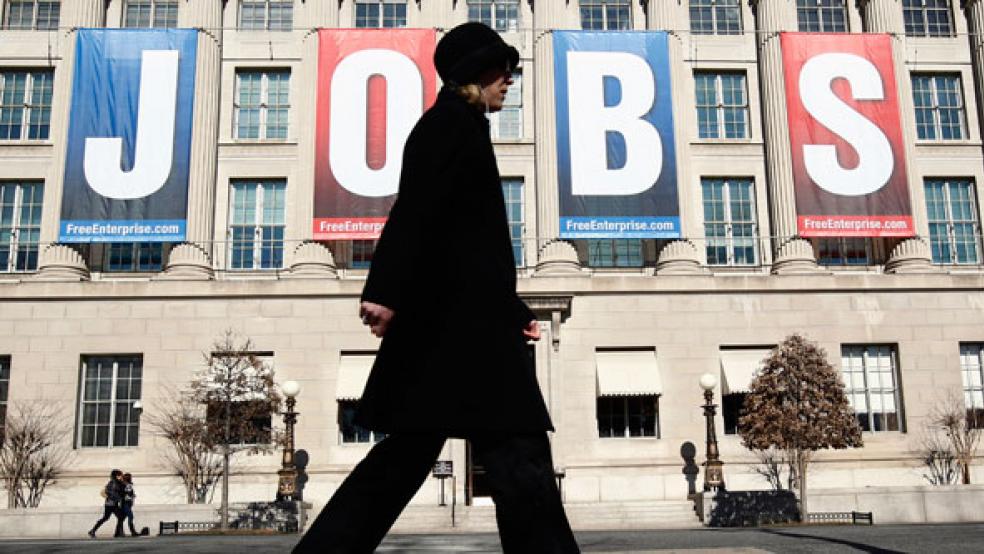The Friday jobs report confirmed the basic trends underpinning a recovery that still feels like a recession: slow growth, modest hiring, and shrinking wages.
In his recent speeches across the country, President Obama has discussed the need for “good” jobs in a “durable, growing industry.” The July employment report indicated that the absence of these jobs have yet to emerge, if ever, in a rebound that technically started in the middle of 2010.
RELATED: OBAMA, THE 'OUTSIDER,' REPRISES EARLIER SPEECHES
 Unemployment ticked down from 7.6 percent to 7.4 percent last month, according to the Bureau of Labor Statistics. But just 162,000 jobs were added in July—missing Wall Street expectations—and the previous two months were revised downward by a combined 26,000.
Unemployment ticked down from 7.6 percent to 7.4 percent last month, according to the Bureau of Labor Statistics. But just 162,000 jobs were added in July—missing Wall Street expectations—and the previous two months were revised downward by a combined 26,000. On the whole, the economy is still generating new jobs and the trajectory has been upwards. But the July figures reveal the disconnect between positive market signals—home values, stock prices—and the lives of daily Americans.
Mesirow Financial chief economist Diane Swonk perfectly crystallized the problem on Twitter: “Quality versus quantity.”
Since May on a seasonally adjusted basis, the economy has added 387,000 net jobs and 88 percent of them have been part-time for “economic reasons,” according to the bureau’s household survey.
Hourly wages fell by two cents last month, while the work week fell as well. More than half of the jobs added were in retail, restaurants and hospitality. But most problematic might be the stagnation in the manufacturing jobs that Obama said the country needs to be creating.
Just 18,000 factory jobs have been created over the past 12 months. Manufacturing grew by 207,000 jobs in 2011 and 154,000 last year, suggesting that one of the engines of the recovery is coming to a stop.
There are two ways to interpret this politically as Obama has bragged that the economy is adding factory work for the first time since the 1990s. Either the recovery has been touting needs a new motor soon, or to sustain manufacturing growth it makes sense to tweak policies.
For Obama, the fix involves more government intervention. It requires the introduction of new tax breaks such that manufacturers pay a top marginal rate of 25 percent and 30 new “innovation” hubs are opened so that businesses, universities and federal agencies can work together to develop high-tech jobs.
For House Republicans, the fix is simple: cut red tape.
“Just this week, the House passed legislation to limit out of control government regulations which are holding back domestic energy production and job creation and harming working middle class families,” said House Majority Leader Eric Cantor (R-VA) on Friday.




